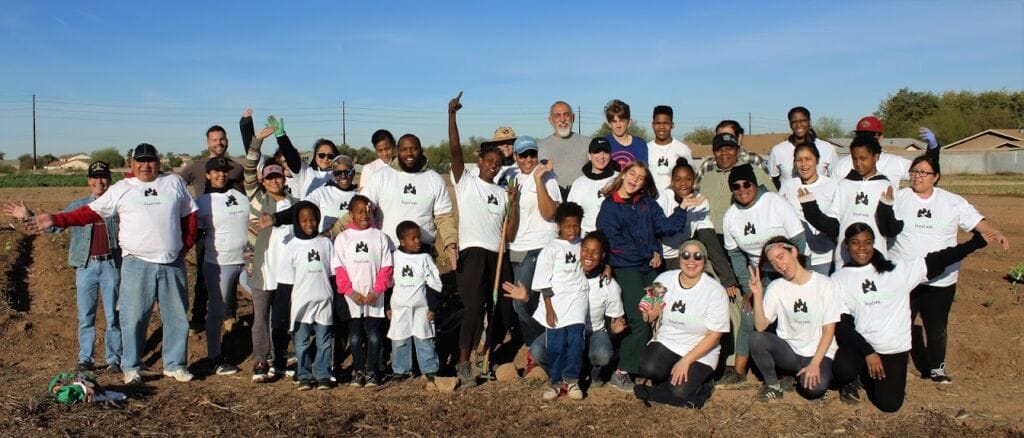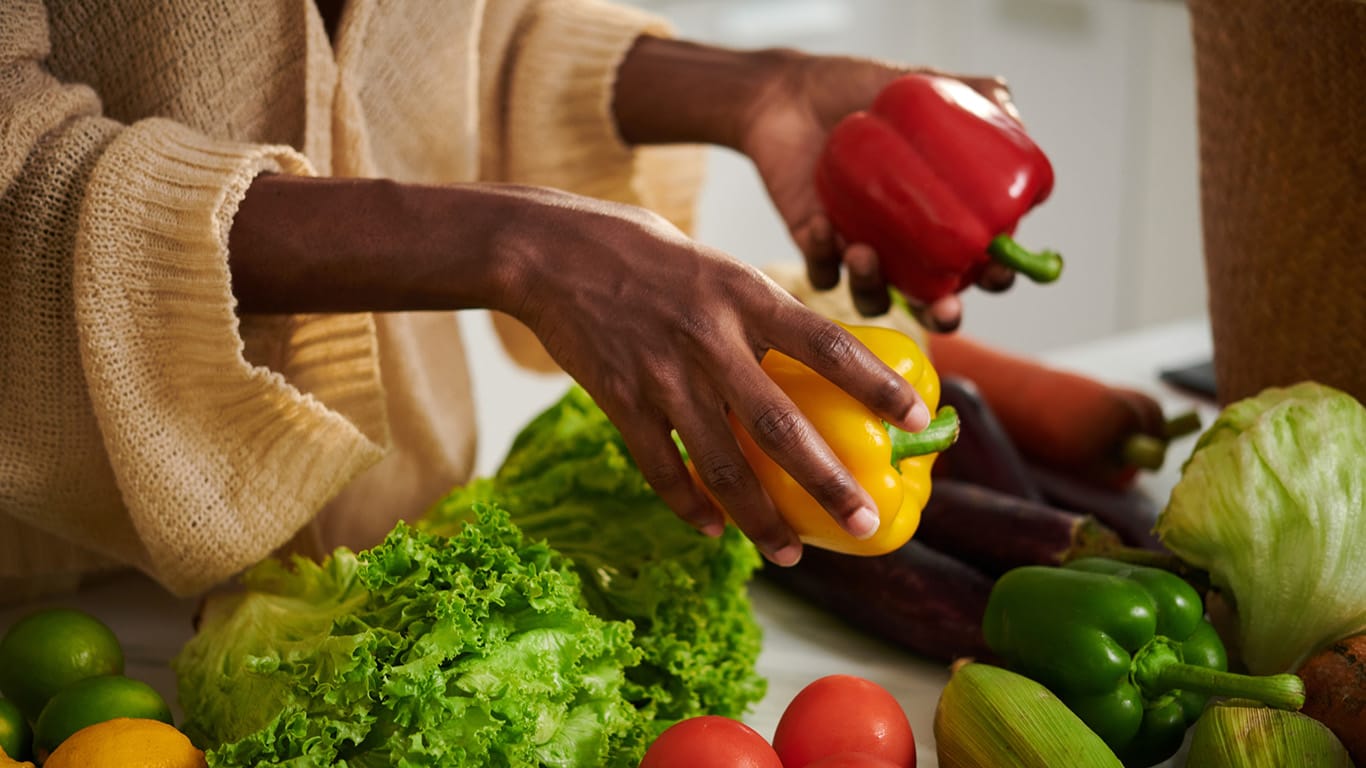Project Roots, a non-profit gardening organization based in Phoenix backstory begins with co-founders Dionne Washington and former Phoenix Mercury star Bridget Pettis taking note of the lack of fresh produce and food provided to people of color in low income areas.
“We had concerns about our community and our culture,and we didn’t know how to grow food at all,” Washington said.
MORE NEWS: How Arizona resorts are capitalizing on culinary to boost business
Dionne Washington and Bridget Pettis had a plan and began to execute it.
The ultimate goal of Project Roots is to enlighten community members on growing their own crops so that one day the non-profit can be the last resort of food distribution.
When it came to understanding the many strategies involved in gardening, Sydney Renfro, who participated in a volunteer session, described her experience as quite illuminating.
Renfro learned how to plant seeds and how to mulch at Project Roots, “it was a really great experience overall,” she said.
Project Roots didn’t start off as a community garden located in Spaces of Opportunity but as two women Pettis and Washington who started cultivating tomatoes in their backyard to give to neighbors and make tomato soup for individuals located in the Phoenix encampment called “The Zone.”
The organization is expected to move indoors in a controlled environment, the goal is to find a way to become more sustainable.

According to the founder, by moving indoors they will be able to produce 330 heads of lettuce every 30 to 45 days in summer and use a lower percentage of water. One of the first steps in making this vision come to life is to connect with funders.
Project Roots faced a few little hurdles along the way, from growing in their backyard, to Agave Farms which was formerly in Central Phoenix, to currently planting in Spaces of Opportunity.
“That’s where we’ve grown for the last three years and we’ve been able to produce a lot of food and get it out to our community and food base,” Washington said when referring to Spaces of Opportunity farm.
The founders began to grow more crops and gave them away for no charge to the general public at farmers markets such as the Downtown Phoenix Farmers Market yet they decided they might have to approach food distribution in a different way.
“ We learned very quickly that we can’t just give free produce away, it’s kind of offensive to other farmers that are working so hard to sell theirs (crops) right next door,” Washington explained.
They took the approach of allowing customers to pay for produce using electronic benefit transfer (EBT) , supplemental nutrition assistance program(SNAP),and food stamps in order to keep the non-profit up and running.
In order for a business to accept these three forms of payment they must obtain a SNAP permit by submitting an application to the USDA Food and Nutrition Service (FNS).
In terms of customers, the state issues their EBT card if they meet the requirements. At the beginning of each month, the state agency credits the person’s SNAP benefit payments to the SNAP account linked to their EBT card according to the Center for Agriculture & Food Systems.
The organization began a Community Supported Agriculture ( CSA) model that offers variety produce boxes that consist of six or seven produce items that can be delivered to your home every Sunday.
Sticking to their mission Project Roots offers multiple forms of payment whether it’s paying the fee through EBT/SNAP or simply volunteering with the organization.
Washington explained to me how Pettis and her 11-year-old son developed the logo of the organization with the inspiration being roots stemming from the Phoenix skyline.
“ I had a place to put the food and Bridget had the vision and my son had the marketing and between the three of us and a lot more people, her cousin came down from Wichita and was in the garden with us when we had no volunteers.”
Now Project Roots has many volunteers every second and fourth of the month learning how to grow crops and the importance of eating fresh produce.
“The community that they created from scratch has been super impressive because gardening is seen as a hobby but, were able to do it for a community garden…its an effort that’s been developed so well and so proudly that its a cool thing to see as a home gardner,” Jason Agyei said who volunteered with Project Roots and broadcast his home gardening experience on social media.
CONTACT:
Dionne Washington: dionne.washington@projectrootsaz.org Jason Agyei: 602-642-8195
Sydney Renfro: 404-502-1455




